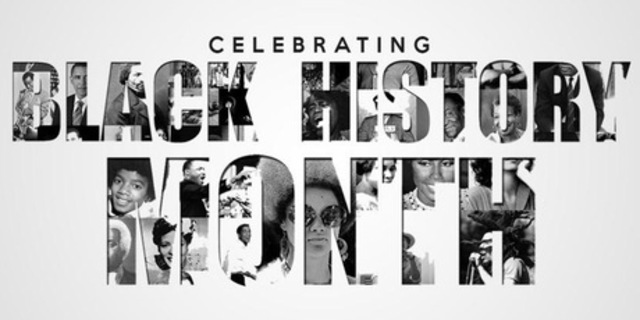Black History Month
February 27, 2017
What is Black History Month and Why Is It Observed? In the United States, Black History Month is observed annually in February to commemorate and honor the achievements of African Americans. Black History Month originally started out as a weeklong observance the second week in February in 1926. It was begun by historian and educator Dr. Carter G. Woodson. Dr. Woodson’s concept was to make everyone aware of the contributions of Blacks to America and to the history of the world as a whole.
Why February? Dr. Woodson initially chose the month of February for Black History Commemoration in order to incorporate the birthdays of two great American men whose birthdays are in February: Abraham Lincoln and Frederick Douglass. Both men played an important role in shaping Black history and, after they died, communities continued to observe celebrations in these 2 men’s’ honor.
Negro History Week – The precursor to Black History Month was ‘Negro History Week’ – a week long observance and celebration event that occurred in 1915. (Of note, 1915 was the 50th anniversary of the emancipation of slaves in the US and its territories. Congress didn’t pass the Thirteenth Amendment until 1865, two years after Lincoln introduced the Emancipation Proclamation.) This week long event was organized by Dr. Woodson and other prominent African Americans in Chicago as a national celebration. Many African Americans traveled from across the country to experience displays and exhibitions that highlighted the progress their people had made since the abolition of slavery. Inspired by the three-week celebration, Woodson decided to form an organization to promote the scientific study of black life and history before leaving town1. The observance was lengthened to a month in 1976; at that time, the sitting President Ford urged all Americans to learn more about the contributions of African Americans to the U.S.
Is Black History Month Still Relevant? Dr. Woodson’s endeavor to make everyone aware of the achievements of Blacks on the world stage was and is still needed at this time! Today, our generation is far removed from the sufferings and injustices experienced by those that came before us. We don’t have first-hand knowledge of being bent over in a field picking cotton or potatoes for a slave master. In my humble opinion, Black History Month falls very short by focusing solely on the contributions of black people here in the U.S. (Jesse Owens, Michael Jordan, Madam CJ Walker, George Washington Carver, W.E.B DuBois, etc.). Little to nothing is taught, learned, or studied about the contributions black people have made to all of the major western and eastern religions (Christianity, Judaism, Buddhism, and Islam) and the fields of agriculture, astronomy, science, medicine, and law. How many people today are familiar with the accomplishments of Imhotep, city of Timbuktu, the Songhai Empire, the Moors, irrigation systems of Meroe and Kerma, and more recently Stephen Biko, Patrice Lumumba, and Cheikh Anta Diop? Black History Month as it is now, fails to deliver on the concept of making everyone aware of the contributions Blacks have had on all of aspects of civilizations.
References:
ASALH, D. M. (2017, February 18). The History of Black History Month. Retrieved from Blackpast.org Remembered & Reclaimed: http://www.blackpast.org/perspectives/history-black-history-month
Scott, D. M. (2017, February 17). About African American History Month. Retrieved from African American History Month: http://www.africanamericanhistorymonth.gov/about/








Ben • Feb 28, 2017 at 9:29 am
Great job, Aron. This is very well done, informative, and inspiring. I hope many people read this; it is a great article.
Haiqing Yang • Feb 28, 2017 at 8:44 am
Actually I think the Black History Month is helpful for some people like me who have never get to know about the culture and history of balck people. Before that, I never realize the inequality within the society because a foreigner like me always think America as a equal and free country. We never know about “the Talk” balck parents will give to children. We never know about black students feel upset about their situation and the way society treats them. Maybe to some of the black students, the Balck History Month does not work the way they expect, but to someone who never has the opportunity to study about the balck community, it is really touching.